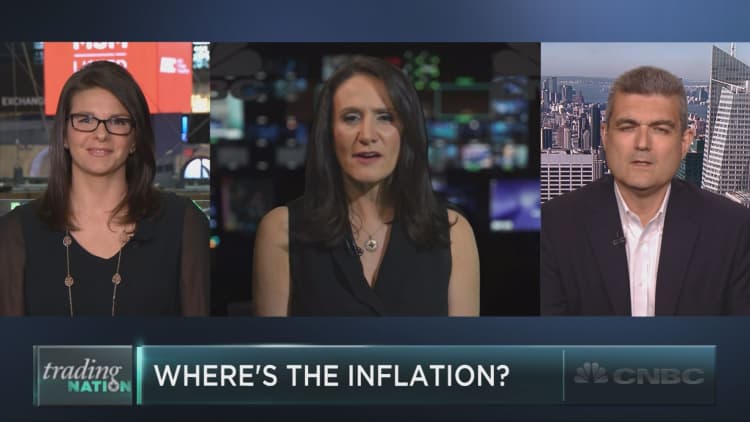
The "biggest forecasting mistake of 2017" — U.S. inflation — has become apparent as gauges of inflation have delivered "an almost unprecedented string of downside surprises since April," according to a recent JPMorgan report.
"So far this year, US core inflation has printed weaker than expected for four consecutive months, which is a streak only witnessed four other times in the past two decades," John Normand, head of foreign exchange, commodities and international rates research at JPMorgan, wrote this month in a note to clients.
Specifically, Normand pointed to inflation measures such as headline consumer price index (CPI) readings, core consumer price index data (CPI without taking into account energy and food prices), personal income and average hourly wage growth. He noted that U.S. inflation, particularly average hourly wage growth, often surprise to the downside, "but rarely for more than four consecutive months."
In fact, the recent downside surprises in core CPI data have been the largest since the global financial crisis, he wrote.
This comes after many calls for rising inflation due to a pickup in economic activity.
Normand wrote that, indeed, bonds were rallying and the U.S. dollar was selling off — at least before this spring's "inflection" point in CPI and average hourly earnings.
Economists getting inflation wrong is not merely an issue in the U.S., said Boris Schlossberg, managing director of foreign exchange management at BK Asset Management. The reason could simply be that traditional measures of inflation have not evolved to keep pace with the changing economic landscape, he said.
"Everybody has gotten it wrong everywhere across the globe, and I think it could be because the model is just simply outdated. We may be in a situation now where technology is so ruthless and relentless at driving costs down that we simply don't have any kind of appreciation for the fact that inflation as we know it may not be there for quite a long time going forward," Schlossberg said Tuesday on CNBC's "Trading Nation."
Some believe rising inflation, when it becomes apparent, may catch investors off guard.
Brown Brothers Harriman chief investment strategist Scott Clemons wrote in a recent report that the risk of inflation ticking higher is one of the largest yet "least apparent" risks for investors now.
"Nobody is interested, nobody cares, and nobody seems to be worried about the threat of rising prices," Clemons wrote, evoking a market truism that the least apparent risk has the greatest potential to destabilize.





